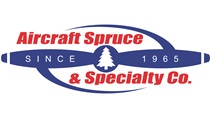Training Tip: I was just testing you
The passing grade on the private pilot airplane knowledge test is 70 percent. Should it be higher?
Just a question. Now that I have your attention, suppose it were 80 percent, or 90. Would that affect your plan for how and when to take the knowledge test?
A bar set high for ground study will likely carry over into your flying.
Keep that in your thoughts if what you have heard about the knowledge test (and when to take it) sounds dismissive of its importance.
If a throwaway attitude about the test leaves you skeptical, you are on the right track. Isn’t it logical that a student pilot who has begun flight training, and gotten some preflight weather briefings, done some flight planning, flown a bit, and navigated to an airport or two would score better on a test about those subjects than someone who hasn’t?
The FAA thinks so—and it’s their test. “Experience has shown that the knowledge test is more meaningful, and is more likely to result in a satisfactory grade, if it is taken after beginning the flight portion of the training,” says the Pilot Study Tips page of the FAA website. “For optimum benefit, it is recommended that the knowledge test be taken after the student has completed a solo cross-country flight. The operational knowledge gained by this experience can be used to advantage in the knowledge test.”
We invited Adrian Cybriwsky, a flight instructor and managing director of test-prep company Dauntless Aviation, to weigh in on the issue. He started by reframing it.
“The more pertinent question might be ‘at what point in their training should they be able to consistently score in the mid 90s on practice tests?’” he said in an email. “I don’t give my personal private students a written test signoff until they can do this.”
If that strikes you as strict, Cybriwsky noted that test-takers should show a high level of mastery on their checkrides. The good news, he said, is that based on a recent survey of a random sampling of his company’s students, “it rarely presents a significant burden.”



